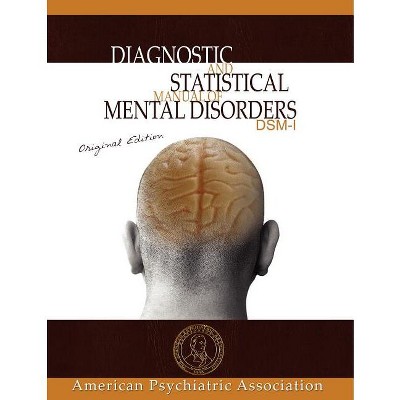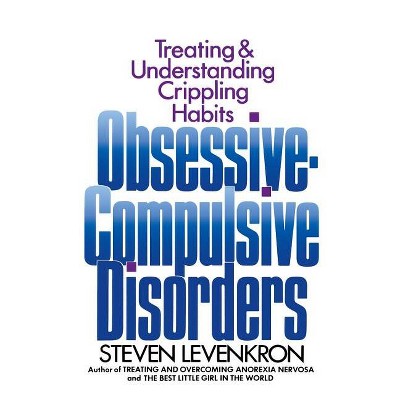Sponsored

The Neuroimmunological Basis of Behavior and Mental Disorders - by Allan Siegel & Steven S Zalcman (Hardcover)
In Stock
Sponsored
About this item
Highlights
- For many years, the immune and central nervous systems were thought to function independently with little or no interaction between the two.
- About the Author: Allan Siegel, Ph.D., was awarded his doctorate from the State University of New York at Buffalo in 1966 and was trained in the fields of Neurophysiology, Neuroanatomy and Behavioral Neuroscience at Yale University School of Medicine.
- 438 Pages
- Medical, Neuroscience
Description
About the Book
Recent developments in the field of neuroimmunology have provided insights into possible relationships between immune function and behavioral disorders. This book examines the nature of these relationships, focusing on immune effects upon adaptive behavior.
Book Synopsis
For many years, the immune and central nervous systems were thought to function independently with little or no interaction between the two. This view has und- gone dramatic changes over the past three decades. Indeed, we now know that there exists various feedback loops between the brain and immune systems that impact signi cantly upon different behavioral processes, including normal behavior and mental disorders. Pioneering efforts in generating this change were initiated by a number of early investigators. Included were those whose efforts were directed at establishing neuroimmune connections as well as others whose research focused upon the relationship between immunity, cytokines, and behavior. This book brings together outstanding scientists and clinicians who have made major contributions to the rapidly developing eld investigating the relationship between immunity and behavior. The book is divided into three parts. The rst part describes pathways by which the brain and immune systems communicate and int- act with each other. In the chapter "Cytokines and the Blood-Brain Barrier" p- vides insight into interactions between the blood-brain barrier and cytokines. Such interactions underlie basic communication between the immune system and brain that are present in normal as well as in disease conditions. In the chapter "Neu- chemical and Endocrine Responses to Immune Activation: The Role of Cytokines," the neurochemical and endocrine consequences of immune challenge and cytokine administration on central neurotransmitter activity are discussed.From the Back Cover
Over the past three decades, the neuroscience community has seen the rapid growth of neuroimmunology, a new area of research investigating how immune activation and immune-derived products interact with the brain and modulate behavior. A convergence of multidisciplinary investigators helped launch this field by developing several groundbreaking lines of research, including the characterization of neuroimmune feedback loops, development of an understanding of sickness behavior, the role of cytokines in modulating normal and abnormal neurochemical and behavioral functions, clinical studies linking mental disorders with alterations in immune function, and identification of the molecular substrates governing the neuroimmunological basis of behavior and mental disorders. The Neuroimmunological Basis of Behavior and Mental Disorders includes contributions from outstanding scientists, and clinicians who have made major contributions to one or more of the subsets of this rapidly developing field. This book will be of particular interest and use to scientists, clinicians, students, educators, and workers in the field of neuroscience and related disciplines involving the study of normal and abnormal behavior.
About the Editors:
Allan Siegel, Ph.D., was awarded his doctorate from the State University of New York at Buffalo in 1966 and was trained in the fields of Neurophysiology, Neuroanatomy and Behavioral Neuroscience at Yale University School of Medicine. He is Professor of Neurology and Neuroscience and Psychiatry at New Jersey Medical School's University of Medicine and Dentistry in Newark, New Jersey. His research focuses on the anatomical substrates and neurochemical mechanisms, including the functions of cytokines, governing aggression, and rage behavior.
Steven S. Zalcman, Ph.D., was awarded his doctorate from Carleton University, Ottawa, Canada in 1990, and was apostdoctoral fellow at the Manitoba Institute of Cell Biology, University of Manitoba Medical School. He received training in Behavioral Neuroscience, Neurochemistry, Anatomy, and Immunology. He held a faculty position in the Department of Psychology, Concordia University, Montreal, Canada, and is presently Associate Professor of Psychiatry at New Jersey Medical School's University of Medicine and Dentistry in Newark, New Jersey. His research focuses on neurochemical, neuropharmacological, and behavioral consequences of immune activation and cytokine treatment.
About the Author
Allan Siegel, Ph.D., was awarded his doctorate from the State University of New York at Buffalo in 1966 and was trained in the fields of Neurophysiology, Neuroanatomy and Behavioral Neuroscience at Yale University School of Medicine. He is Professor of Neurology and Neuroscience and Psychiatry at New Jersey Medical School's University of Medicine and Dentistry in Newark, New Jersey. His research focuses on the anatomical substrates and neurochemical mechanisms, including the functions of cytokines, governing aggression, and rage behavior.
Steven S. Zalcman, Ph.D. was awarded his doctorate from Carleton University, Ottawa, Canada in 1990, and was a postdoctoral fellow at the Manitoba Institute of Cell Biology, University of Manitoba Medical School. He received training in Behavioral Neuroscience, Neurochemistry, Anatomy, and Immunology. He held a faculty position in the Department of Psychology, Concordia University, Montreal, Canada, and is presently Associate Professor of Psychiatry at New Jersey Medical School's University of Medicine and Dentistry in Newark, New Jersey. His research focuses on neurochemical, neuropharmacological, and behavioral consequences of immune activation and cytokine treatment.
Shipping details
Return details
Frequently bought together
Trending Non-Fiction

















